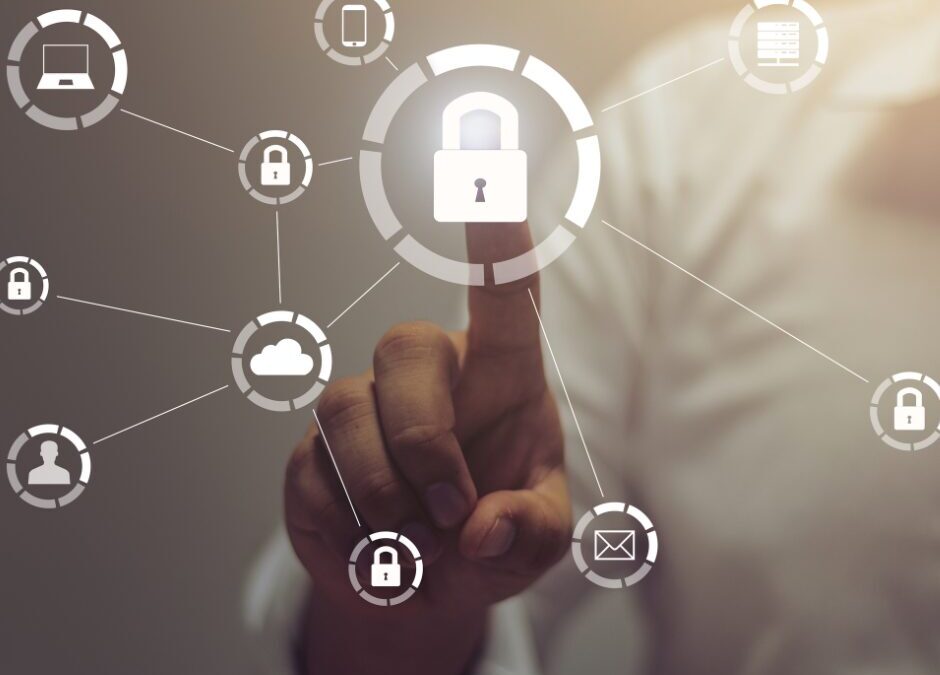In today’s digital age, cybersecurity stands as a critical concern for businesses across industries, including government contracting. As technology advances, so do the threats posed by cyberattacks, making it imperative for government contractors to prioritize cybersecurity measures to safeguard sensitive financial and contractual information.
Explore key strategies that government contractors can implement to enhance cybersecurity in their accounting practices, ensuring the integrity and confidentiality of their data.
Implement Robust Authentication Measures:
Enhancing security protocols with measures like multi-factor authentication (MFA) and robust password policies fortifies defenses against unauthorized access to critical systems and data.
Regular Security Training and Awareness Programs:
By conducting regular training sessions and awareness programs, organizations can educate employees about cybersecurity best practices and potential threats. This fosters a culture of security, empowering staff to identify and respond to cyber threats effectively.
Utilize Secure Accounting Software:
When selecting accounting software solutions, opt for those that prioritize security and compliance with industry standards. Ensure that the software encrypts data both in transit and at rest, and regularly update it to patch any security vulnerabilities.
Secure Remote Access:
As remote work becomes more prevalent, ensuring secure remote access is paramount for protecting sensitive accounting information. Implementing virtual private networks (VPNs) and secure remote desktop solutions ensures encrypted communication and secure access to accounting systems from remote locations.
To ensure optimal protection, organizations can implement advanced VPN features, such as multi-factor authentication and endpoint verification. Additionally, choosing a reliable VPN provider like https://vpn.pro offers consistent performance, expert support, and robust encryption, helping businesses maintain secure remote access to their accounting systems while minimizing the risk of breaches.
Regular Software Updates and Patch Management:
Keep accounting software, operating systems, and other applications up to date with the latest security patches and updates. Regularly patching software vulnerabilities helps mitigate the risk of exploitation by cyber threats.
Data Encryption:
Encrypting sensitive data stored on servers, databases, and portable devices adds an additional layer of protection, ensuring that even if data is compromised, it remains unreadable and unusable to unauthorized parties.
Conduct Regular Security Audits and Assessments:
Regularly assess the organization’s cybersecurity posture through comprehensive security audits and assessments. Identify vulnerabilities, gaps, and areas for improvement, and take proactive measures to address them.
Secure Cloud Storage Solutions:
When utilizing cloud-based accounting services, it’s essential to choose reputable cloud service providers that offer robust security measures. Look for providers that prioritize data encryption, implement stringent access controls, and hold relevant compliance certifications.
Implement Incident Response Plans:
Develop and regularly update incident response plans to outline procedures for detecting, responding to, and recovering from cybersecurity incidents. Ensure all employees are aware of their roles and responsibilities in the event of a security breach.
Foster Collaboration with IT Security Experts:
Collaborate with IT security experts and consultants specializing in cybersecurity for government contractors. Leverage their expertise to assess your organization’s security posture, implement best practices, and stay ahead of emerging threats.
By implementing these strategies, government contractors can strengthen their cybersecurity defenses and mitigate the risk of cyber threats, ensuring the protection of sensitive financial and contractual information in an increasingly digital landscape.

